TNM in Toulouse. New coalitions for regeneration
Edited on
10 October 2019Toulouse was the third city where the partners of our project met. During the three days (June 17-19). we focused on the experience of Toulouse Metropolis in the field of revitalization, its way of managing this process and participatory methods involving residents. However, it was particularly important for us to learn about innovations in Public Private Partnership and to understand the role played by Area/Project Manager in the context of the main pillar of our transfer network which is mediation.
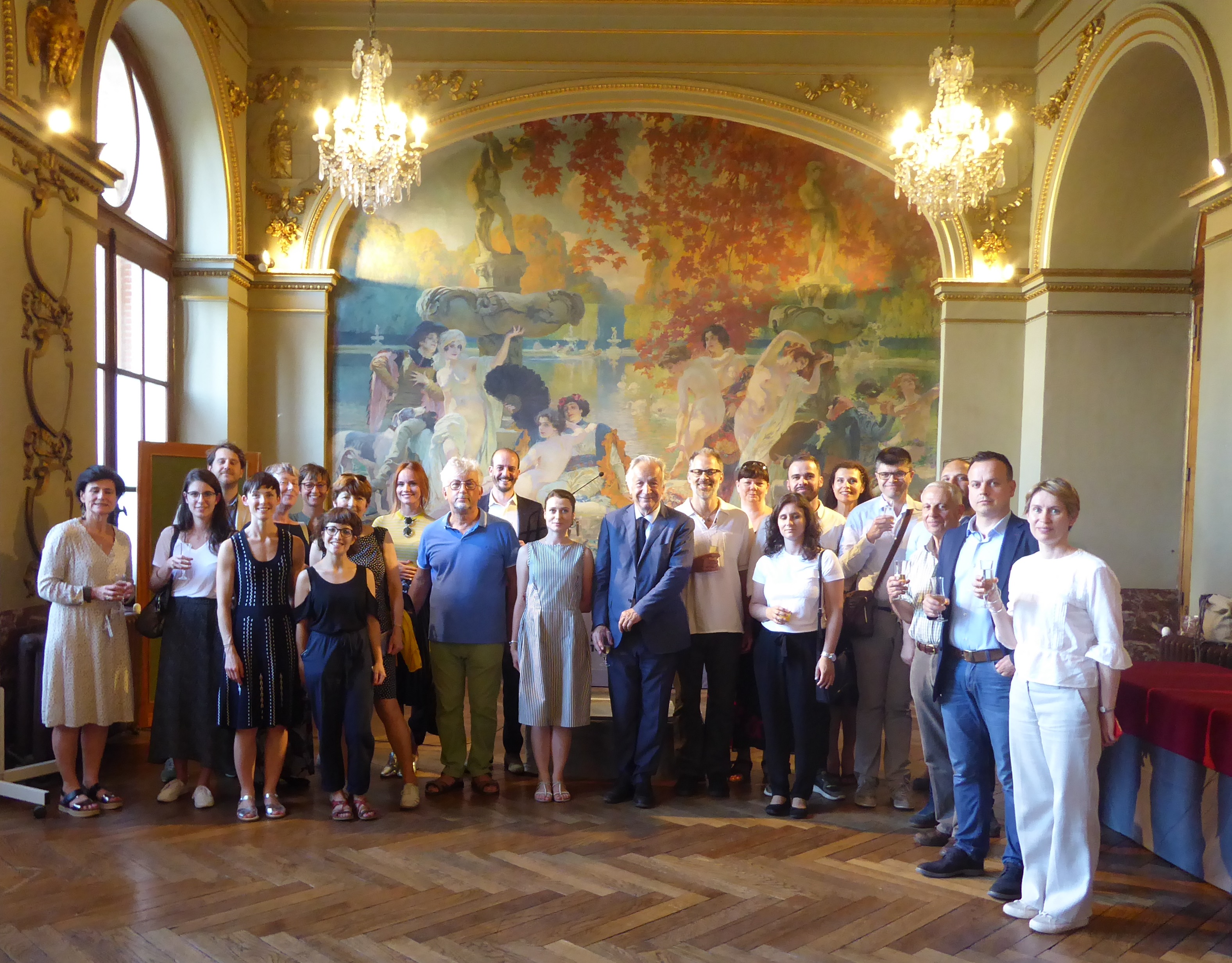
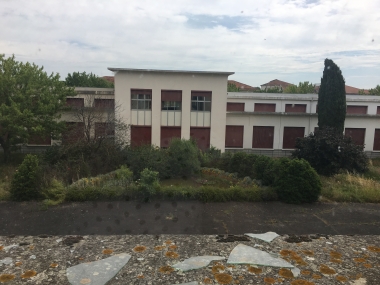
The meeting was opened by Mrs. Elsa Amadieu General director of development in Toulouse Métropole, who welcomed all the partners. After a short speech we started the workshop with a short integrative exercise.
The Empowerment and Positioning of Change Makers in Public Authorities
This part was dedicated to the presentation of our network's Lead Expert, Piotr Wołkowiński, in which he presented, among other things, new roles and competences of a civil servant. In the next part we discussed the critical elements of change, which should take place in each city in the context of communication, competence of officials and management. Special attention was paid to the last iss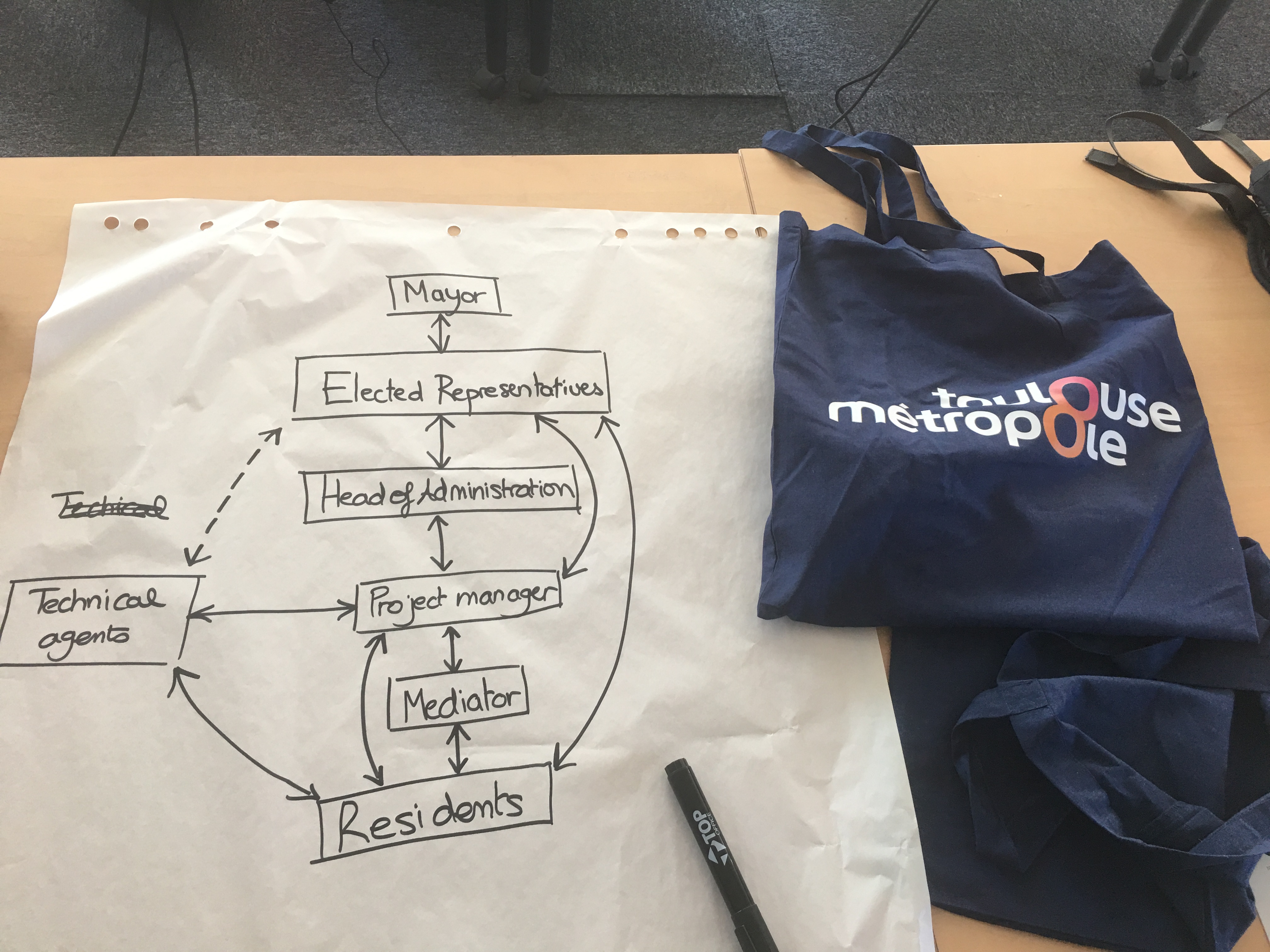 ue, because the revitalization process and the involvement of all stakeholders in it - including change makers - require modern management (horizontal and vertical).
ue, because the revitalization process and the involvement of all stakeholders in it - including change makers - require modern management (horizontal and vertical).
How Are Mediators and Area Managers Positioned in Your City ?
During this part of the workshop the partners worked in city groups. The aim of the exercise was to describe the position of mediators and project managers in the city with arrows, comments, graphs, etc. - if such functions already exist or to show where they could be if such functions were introduced. The structure had to take into consideration both the city authorities, the management levels in the offices and the citizens and other stakeholders affected by the mediators' and area managers' activities. During the second exercise prepared by Lead Expert, we identified and developed the functioning of an ideal team to manage the regeneration area by pooling resources and the needs of the individual members of the team.
Role of the Project Manager /Area Manager
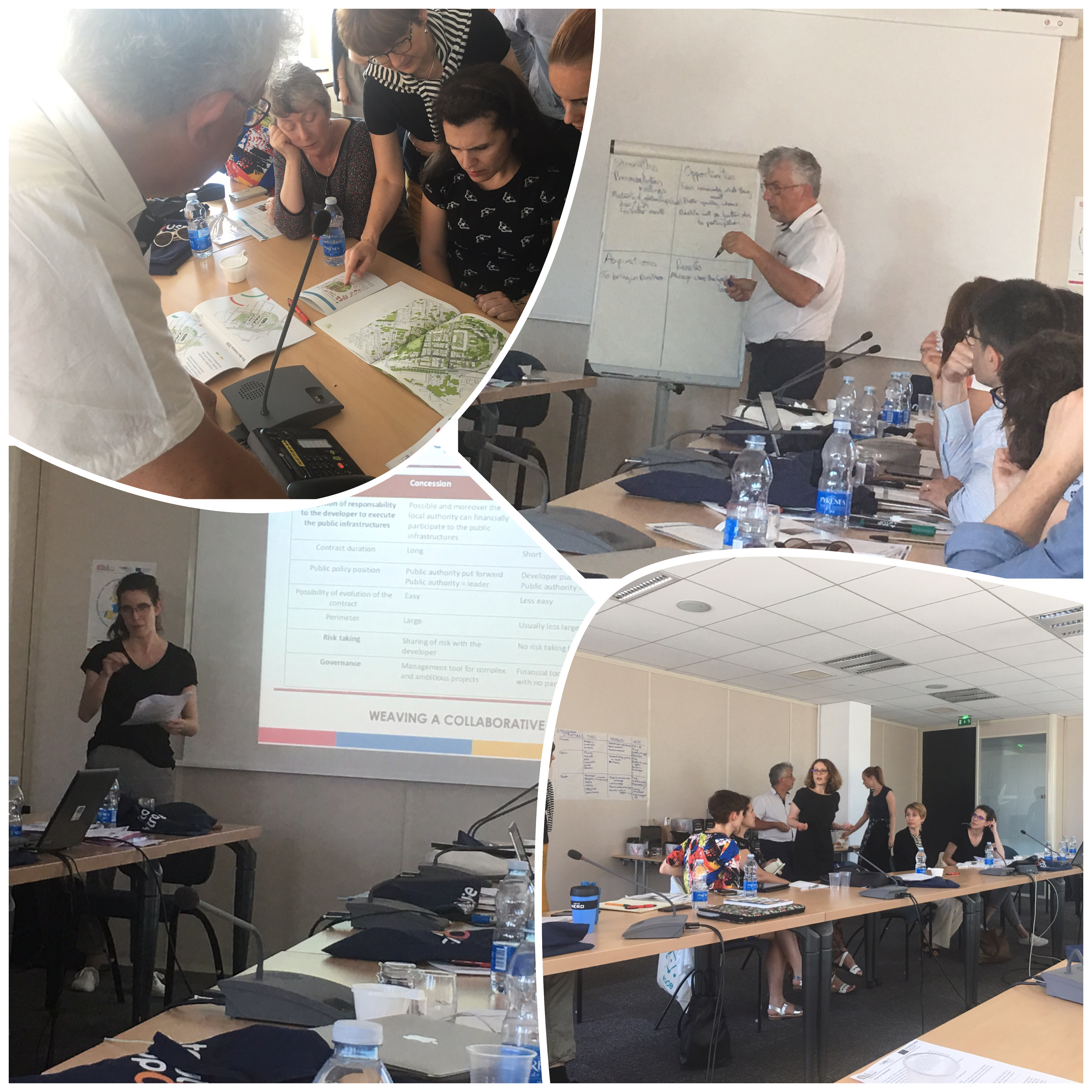 Toulouse Metropole together with a representative of a private developer who manages one of the largest PPP projects, presented the daily work of a project manager. Their competences and scope of activities were discussed. Special attention was paid to the issues of communication, building relationships at all levels of contact and cooperation with other units in the office. Particularly important for the person in this position is to achieve a full understanding in working with the partner - investor/developer. The cooperation between the area manager and the local community was also discussed, and how he/she involves the residents in the project implementation.
Toulouse Metropole together with a representative of a private developer who manages one of the largest PPP projects, presented the daily work of a project manager. Their competences and scope of activities were discussed. Special attention was paid to the issues of communication, building relationships at all levels of contact and cooperation with other units in the office. Particularly important for the person in this position is to achieve a full understanding in working with the partner - investor/developer. The cooperation between the area manager and the local community was also discussed, and how he/she involves the residents in the project implementation.
Public Private Partnership
One of the most important topics of our TNM in Toulouse was Public-Private Partnerships. During the first part together with the developer's representative, the staff members of development operations and urban projects department in Toulouse Metropole shared their experience about every stage of preparing a PPP project: from planning, negotiating and selecting an operator, through contract drafting (division of risk and profits) and project activities implementing. We have learned, above all, that the key to success in PPP projects are: trust between the municipality and the operator, communication and involvement of all internal and external stakeholders and transparency throughout the whole process. In the second part there were presentations on alternative ways of financing socially important tasks with contribution from private investors. We delved deeper into French PPP and learned about two tools to finance and operate public amenities: Urban Partnership Project and Concession Agreements. The final part was a group discussion about PPP in which all participants, using a SOAR model (strength, opportunities, aspirations, results) could reflect and comment on the Toulouse experience in relation to each partner city’s situation.
Visit of a Participative Housing Project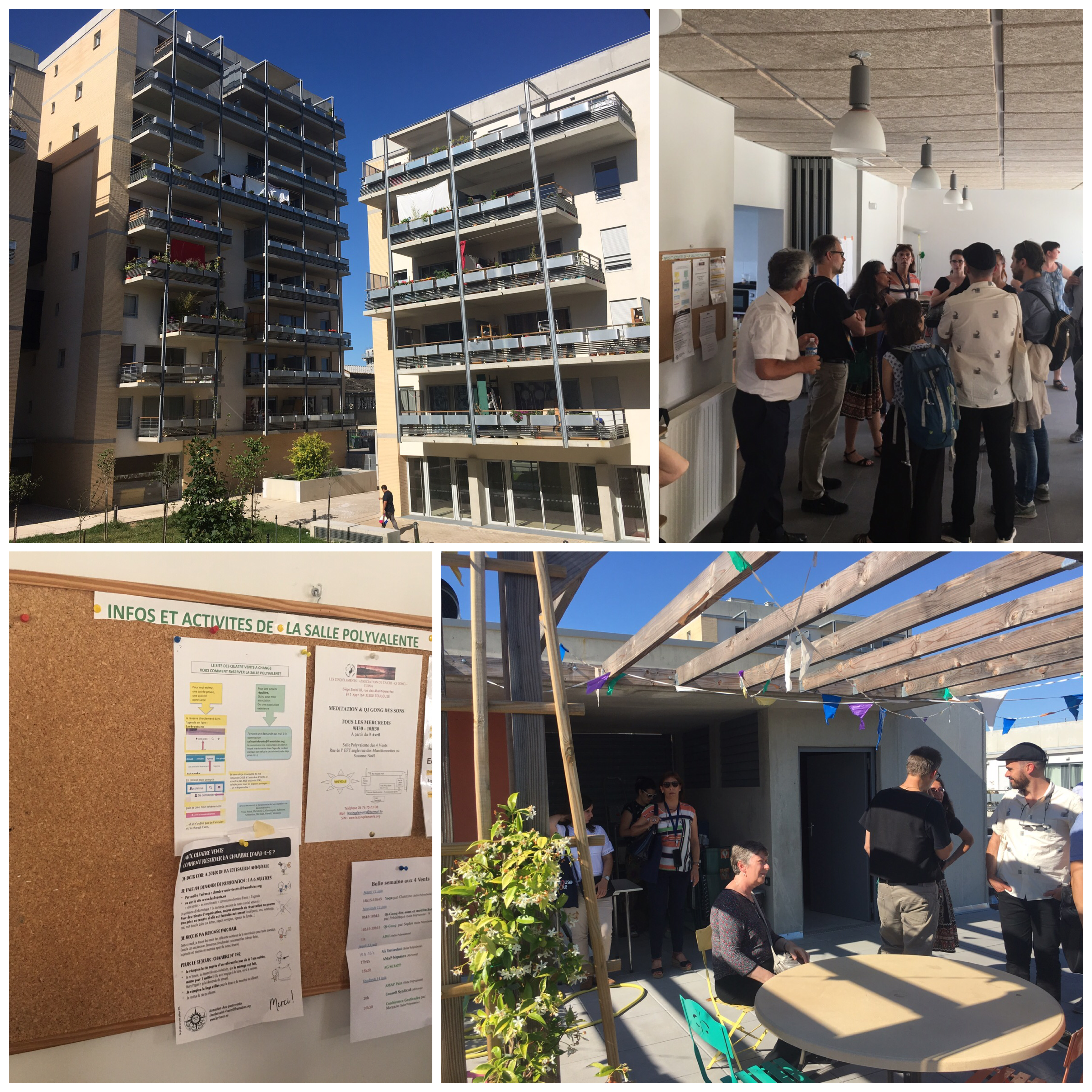
The first of the two planned field visits that we made during our TNM was a visit to the Cartoucherie eco-district where the project "Aux 4 Vents" is being implemented. Indeed, this eco-neighborhood is developing on the historic site of the former cartridge factory of Toulouse. Our guide to this unusual place was one of the residents, Sylvie Carrive, thanks to whom we were able to learn about the history of this place and every stage of the project. We also had the opportunity to talk to other residents, familiarize ourselves with the activities of the community center and visit the common spaces for residents (guest rooms, roof terrace, bicycle garage, workshop, laundry, etc.) and one of the apartments.
Visit of th e Guillaumet Site
e Guillaumet Site
The second planned study visit took place on the premises of the Guillaumet site project - a former military area where an aeroplane factory operated in the past. Currently, this area will undergo the process of revitalization. What is important, this is the first project in Toulouse to be implemented on the basis of the Concession Agreement. During the visit we were accompanied by Mr. M. Erizé, President of the association of the former workers of the Guillaumet site and a representative of the developer whose project was chosen for implementation. This allowed us to get to know the history of this place, feel the atmosphere of the times when the factory and school for future employees operated here, and at the same time familiarize with the plans and vision of this place in the near future.
Inclusive Housing
Another topic that we touched upon during our TNM was inclusive housing. Camille Lacaze from the l'Esperluette Association described the model of inclusive housing introduced for people with disabilities, esp. mentally disabled. The goal of this project is to promote a housing solution (a set of dwellings or a collective) in which people with and without disabilities can live together. Houses based on this model and supporting people with intellectual disabilities will also be created on the Guillaumet site project.
The ULG and Participation
The last part concerning the Guillaumet site was dedicated to the participatory methods used in this project. The meeting with TNM participants was attended by members of ULG, whose work is also focused on this project and its neighborhood. Thanks to the film which was created as part of the report presenting activities in the neighbourhood of the Guillaumet site we could see the enormous scale of the activities carried out, how in practice worked used methods and tools and how many inhabitants got involved. During the meeting the process of the consultation w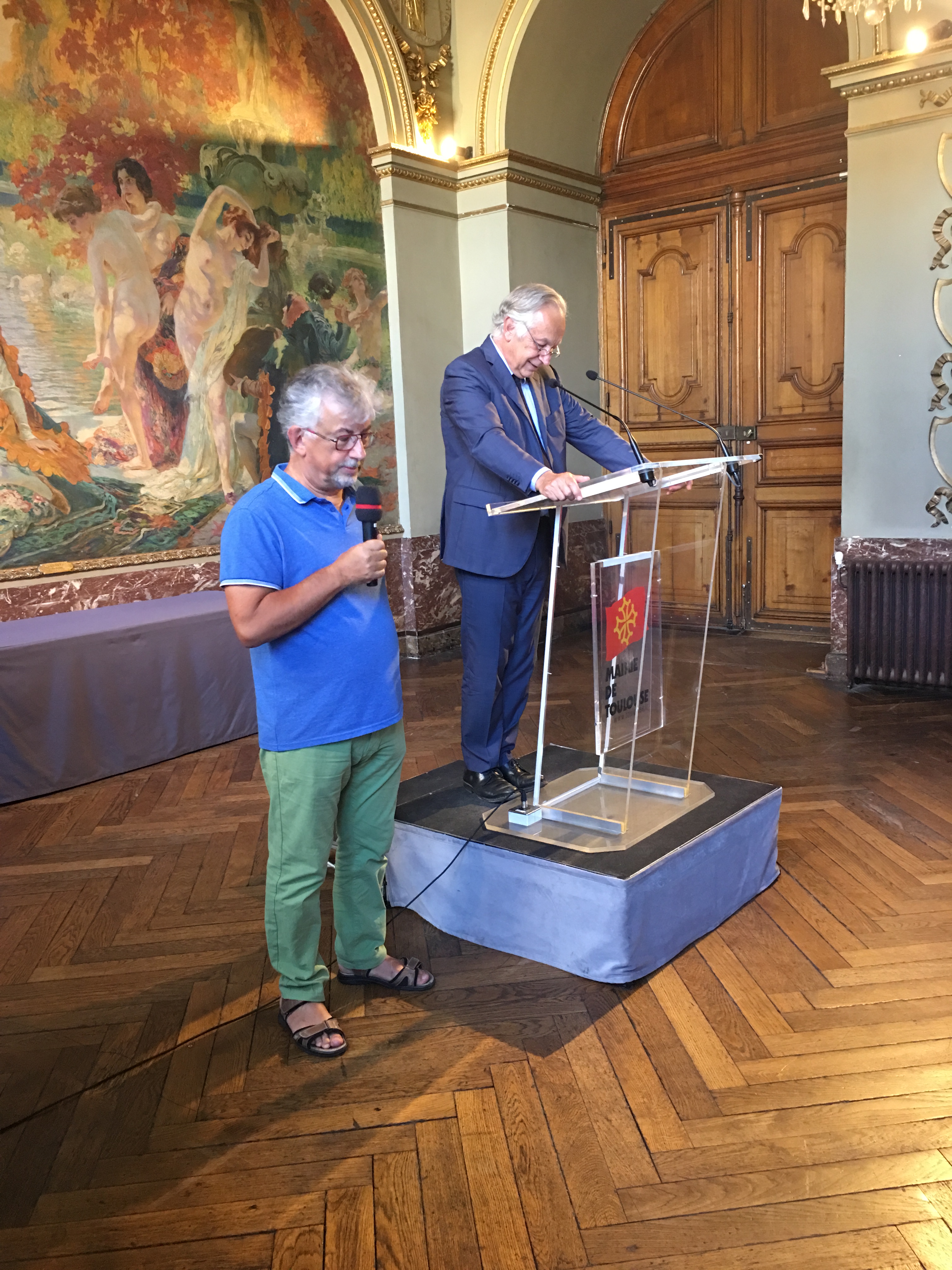 ith residents and the tools that were used in it were presented. The portable, folding round table with armchairs, which made everyone sitting at it feel that they have the same importance was extremely inspiring for all partners of URM project.
ith residents and the tools that were used in it were presented. The portable, folding round table with armchairs, which made everyone sitting at it feel that they have the same importance was extremely inspiring for all partners of URM project.
Networking Evening Event
In the evening, at the special invitation of the Toulouse's mayors, we visited the Capitole - The City Hall. The meeting was attended by Mr Daniel Rougé Deputy mayor for solidarity policies and social affairs, who in his speech to the project participants emphasized the importance of its assumptions for Toulouse Metropole and other European cities facing the challenge of social engagement in revitalization processes.
The Citizen Participation
The first part of the third day of our visit concerned various citizen participation tools used in Toulouse Metropole. We learned, about many different mandatory and voluntary bodies. Approaches were created which are innovative, unique and specific to the most vulnerable neighbourhoods. However, it is important to use different methods, to select them and plan the actions in such a way to involve people in different levels of participation and to mobilize public services. Particular attention was paid to three very interesting solutions: Citizen's Council, The Project’s houses and “Lab of uses”
At the end of our meeting, the current administrative and implementation issues related to the next stages of the project were discussed. The next meeting will take place in the middle of September in Łódź and will be dedicated to mediation and cooperation with the inhabitants of the city.
Positioning of Change Makers in Public Authorities
Submitted by n.rydlewska on
